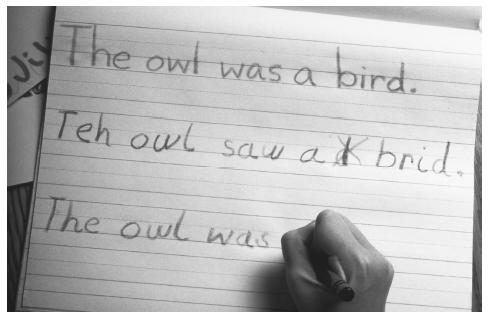
My son will was officially diagnosed with dysgraphia in the 7th grade by a public school diagnostician. He had a post-high school vocabulary and reading level but wrote like a 3rd or 4th grader. he was told that he would never be able to take notes on lectures because it would take too long for his brain to process what he heard and then put it down on paper. Once he wrote something down, it was predicted he would miss one or two of the next points taught!
Will appreciated the label because it was the first time in his life that he believed the learning problems were not his fault. Suddenly, he could believe he was smart and that there was help available to get him through school with coping and compensating strategies. On the other hand, I felt like the diagnosis was a terrible thing. would he always struggle in school? would he not be able to go to college? would he be unable to get a good job to support a family?
Shortly after we learned of Will’s disability I was helping to lead a prayer group in the home of Jan Bedell. when I asked her if she had a job, she explained that she worked with children who struggled with learning. I asked her if she was familiar with the term “dysgraphia.” she shrugged her shoulders as she walked casually into the kitchen saying, “Oh, that’s just because of a disorganized brain.” My jaw dropped to the floor. The “death sentence” my son received seemed to be an easy thing for this lady to understand and to fix!
Within a few months will had an evaluation and two of his sisters and I went on program to improve our brains. It was a busy four years that followed of doing what seemed like crazy activities. I say it like this because in all my training for a Texas teaching certificate and in all my 15 years of teaching in public, private and home schools I had never heard of neurodevelopment. nobody had ever taught me about the brain and how to make it work better so learning could be easier.
Today, will is a successful upper classman at McMurry University in Abilene and his two sisters are making straight As with an extraordinary online high school called College Preparatory Academy. My brain is working better, too, because now my closets and cabinets are organized, I can remember a 7 digit phone number and I only rarely lose my keys or sunglasses.
You ask, “Could my child have dysgraphia?” At little Giant Steps we say “no” to labels and “yes” to hope. We don’t focus on the learning disabilities or assume they can’t be remedied. instead, through an evaluation process and an individualized neurodevelopmental program we help our clients build new nerve pathways so their brains work better. [It's called neuro-efficiency.] Carefully chosen physical activities target strategic parts of the brain to improve organization. Clients play auditory and processing games to increase their short term memory that results in global maturity for children. For adults these games help keep the mind sharp. As brain function improves, learning gets easier.